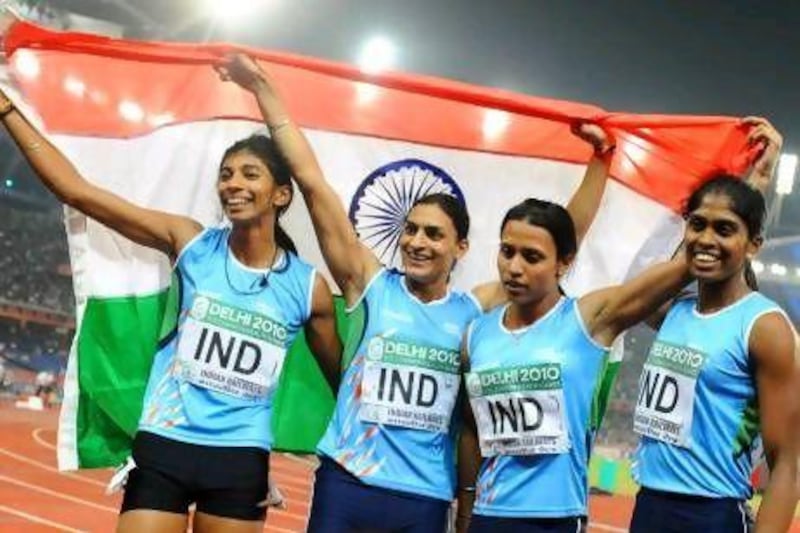For a few months, they were the golden girls, lauded in a fashion usually reserved only for cricketers.
On the final day of the Commonwealth Games at New Delhi in 2010, Manjeet Kaur, Sini Jose, Ashwini Akkunji and Mandeep Kaur blitzed a strong field to win gold in the 4x400-metre relay, the first time India had done so in an event that requires both speed and endurance.
The English commentator was beside himself in the final stages, saying: "This would be the most phenomenal of grandstand finishes if India were to take this gold. You could not write this script … what a fitting conclusion to these games."
A few weeks later, in Guangzhou, the girls proved that Delhi hadn't been a one-off, winning Asian Games gold as well. The tall and lithe Akkunji, who also won the 400m hurdles gold, was suddenly the toast of a nation that had last seen such success with PT Usha in the 1980s.
The script though would soon unravel. In June 2011, Akkunji, Jose and Mandeep were among six India runners to test positive for the steroids methandienone and stanozolol. Two months ago, Manjeet was banned for not submitting her sample to the National Anti-Doping Agency. They had all trained under Yuri Ogrodnik, a Ukrainian.
Last month, Pinki Pramanik, who was part of the gold-winning quartet at the 2006 Doha Asian Games, was arrested after her partner accused her of being male, and of rape.
There will be no India woman's relay team at the London Olympics, as what was once perceived to be a golden age turns to dust.
Follow us
[ @SprtNationalUAE ]





